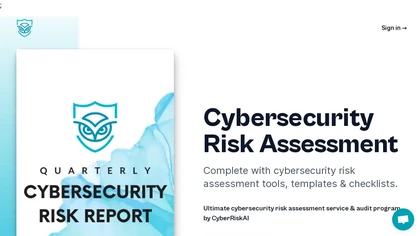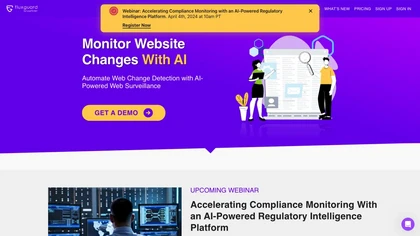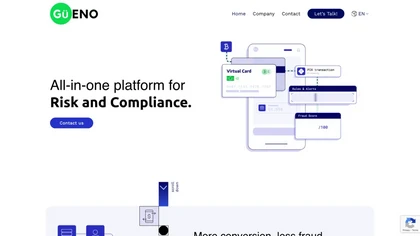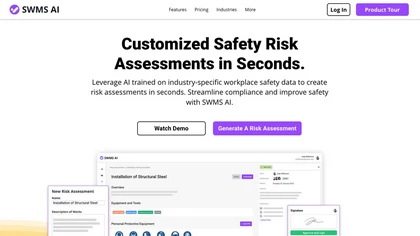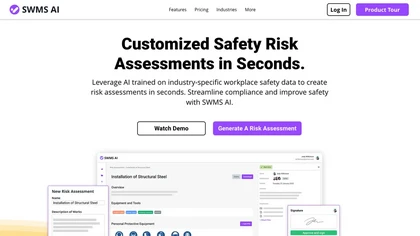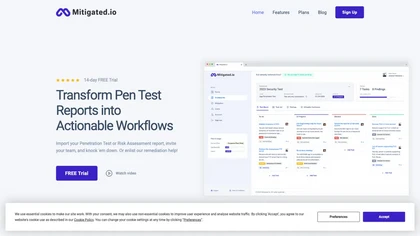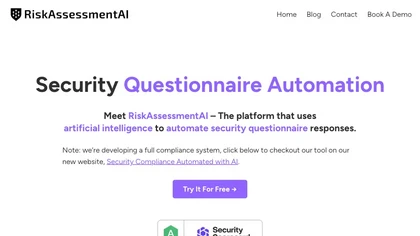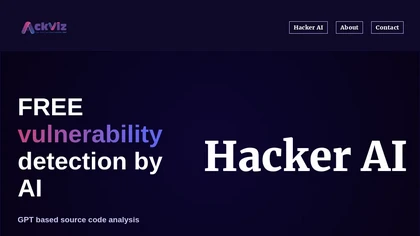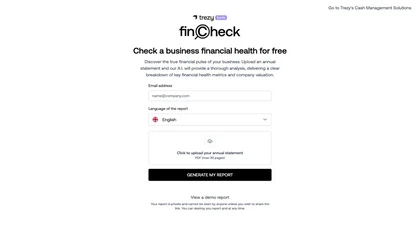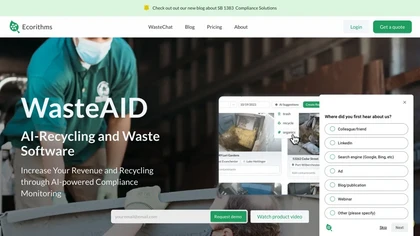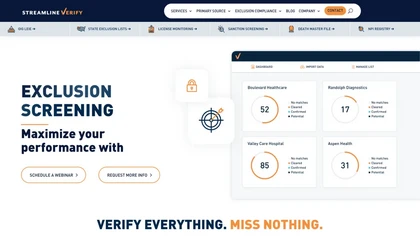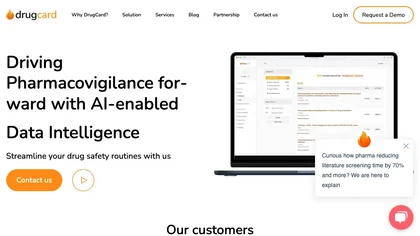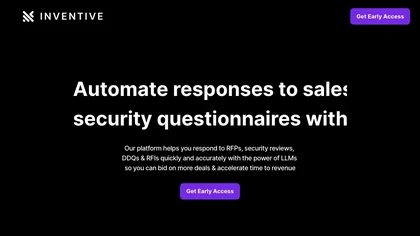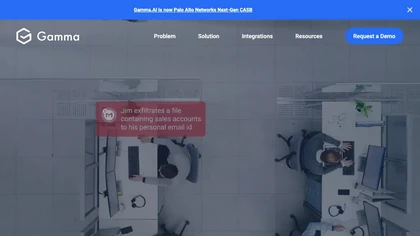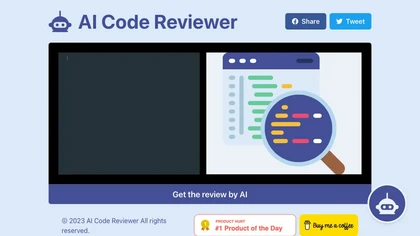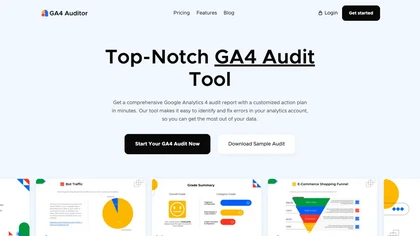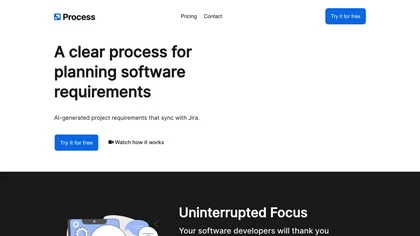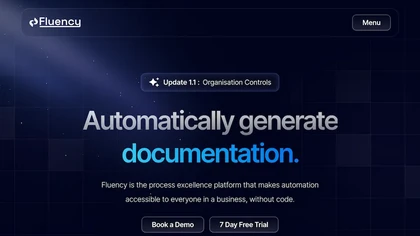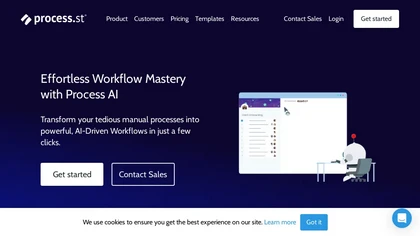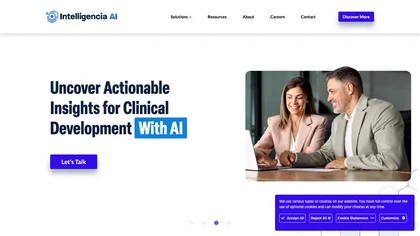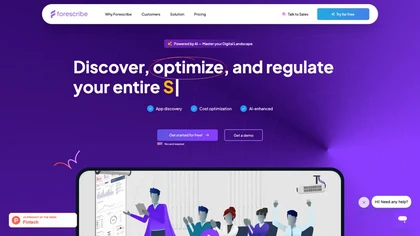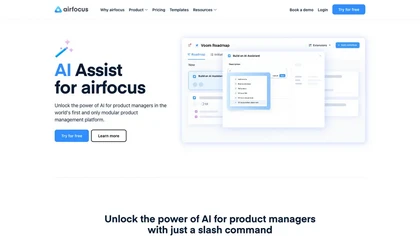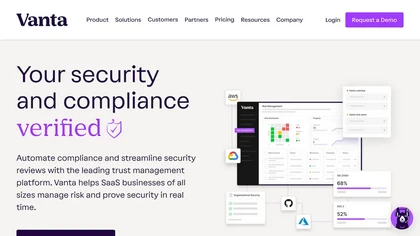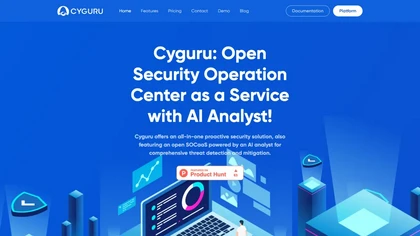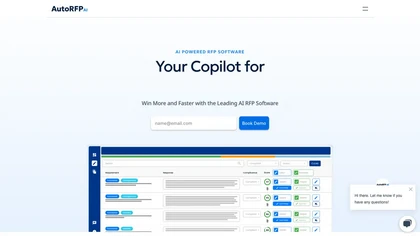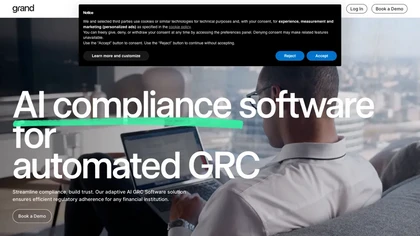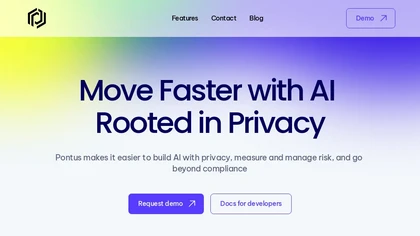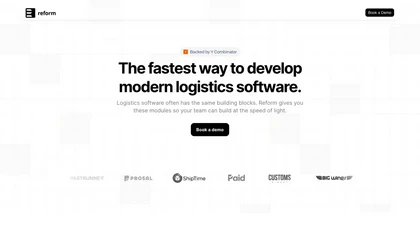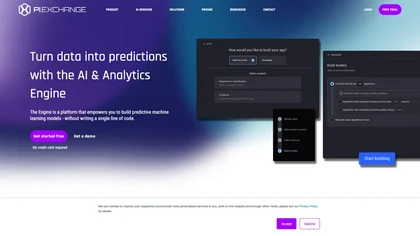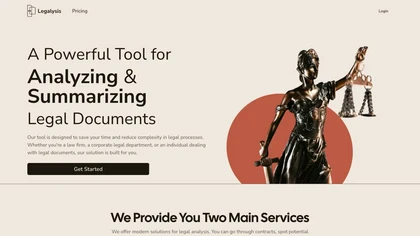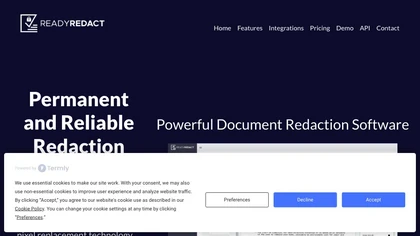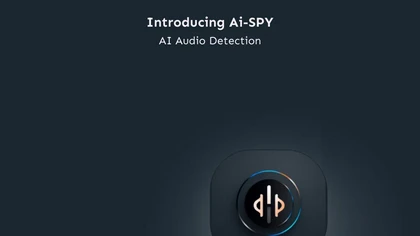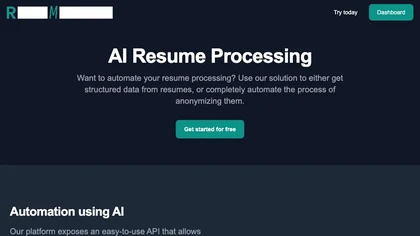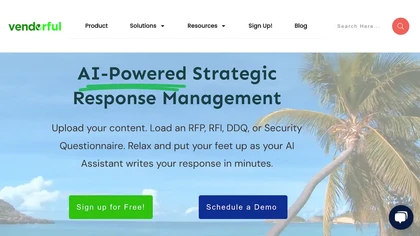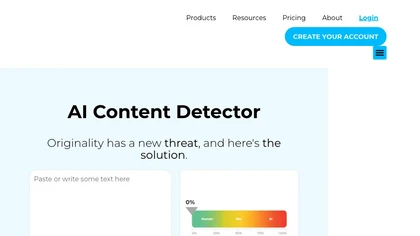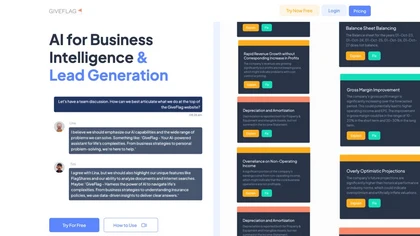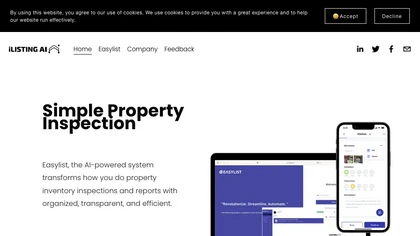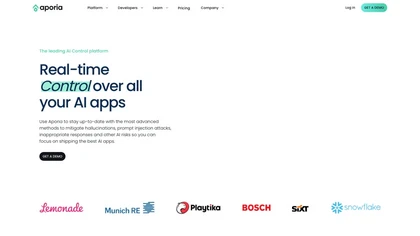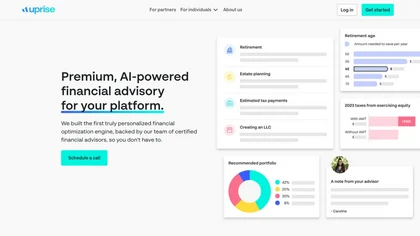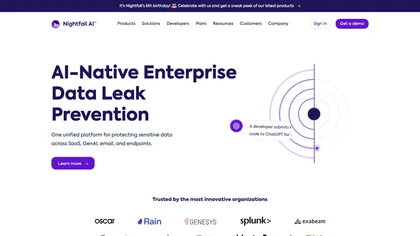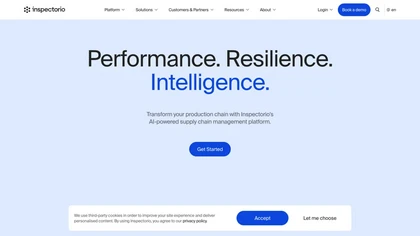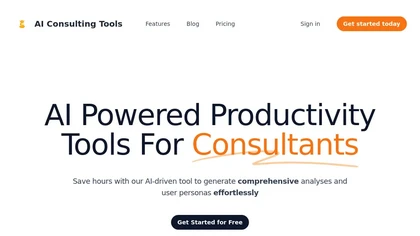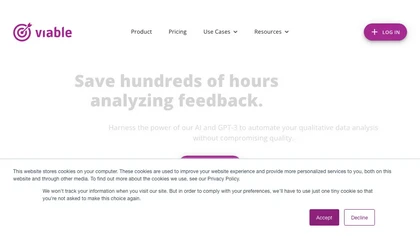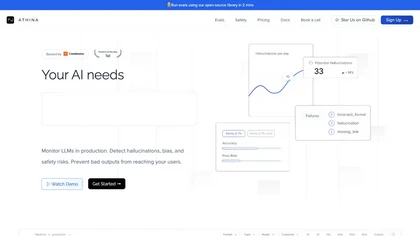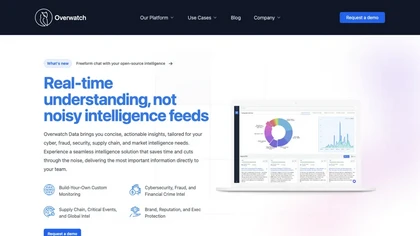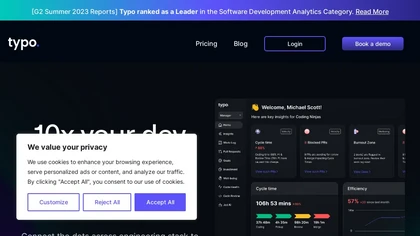AI use cases for Internal Audit
Generative AI can be applied in various applications for internal audit. Here are some examples to explore below for inspiration with AI tools to get you started with using AI in internal audit.
🛠️ 70 AI tools for Internal Audit
Explore a dynamic list of some of the most popular tools to get you started with various AI use cases and applications for Internal Audit to streamline your workflows and productivity today.
Cyberriskai features
- Cybersecurity risk assessment
- Automated quarterly risk audits
- Nist cybersecurity audit framework
- Comprehensive assessment report
- Employee cybersecurity practices
Fluxguard features
- Web Change Monitoring using generative AI
- Screenshots and pixel change detection
- Text change detection and network analysis
- Real-time or scheduled report dispatch
- Email reports with screenshots and text changes
AI-FraudGuard Ecommerce features
- Contactless conversion
- Fraud prevention
- Transaction monitoring
- Compliance processes automation
- Real-time monitoring
SWMS AI features
- Tailored risk assessments generation
- Customizable safety policies
- Personalized document generation
- Integration of AI assistant for safety information
- Streamlining compliance processes
SWMS features
- AI risk assessments
- Safety Co-Pilot integration
- Customization options
- Quickly generate safe work sequences
- AI-powered safety recommendations
Mitigated.io features
- Transforms penetration test risk assessment reports into actionable workflows
- Leverages collaborative workspaces for task assignment and progress tracking
- Provides AI-enriched mitigation guidance for security vulnerabilities
- Supports easy import of assessment reports
- Enables users to enlist security mitigation services directly from the dashboard
RiskAssessmentAI features
- Automate security questionnaire responses
- Scan documentation
- Build knowledge base
- Support various assessment formats
- Collaboration between teams
🔥
Create your account, save tools & get personal recommendations
Receive a weekly digest of our handpicked top tools.
Unsubscribe anytime
Hacker AI
4.6Hacker AI features
- Source code scanning
- Security weakness identification
- Potential exploitation detection
- Hacker targeting prediction
- Malicious actor analysis
FinCheck by Trezy features
- Financial health assessment
- Annual statements analysis
- Multilingual reports
- Privacy control
- Security features
WasteAID features
- Automatic route auditing
- Integration with existing systems
- Audit over 400k generators and 1m+ pickups
- Detect overflow incidents and identify contamination
- Tracking commercial account compliance
Equixly features
- Continuous scanning of APIs for security vulnerabilities
- Detection and fixing of security issues in development process
- Scalable API pentesting capabilities
- Mapping of attack surface and inventory of API landscapes
- Transparent compliance reporting model
Streamline Verify features
- Screening against various databases including OIG LEIE, state exclusion lists, license monitoring, sanction screening, death master file, and NPI registry
- One-stop portal for quick identification and resolution of compliance screening issues
- API integration for future compliance needs
- Enhances efficiency in executing exclusion screening and credential management
- Trusted by over 10,000 establishments
DrugCard features
- Automates drug safety routines
- Multiple languages and countries
- High-performance screening
Inventive features
- Streamline rfis, rfqs, security reviews, rfps
- Generate reliable answers with ai
- Reduce reliance on subject matter experts
- Save substantial time and effort
- Up-to-date content
Flagright AI features
- Real-time transaction monitoring
- Case management
- Automated end-to-end solutions
- AI forensics for investigating suspicious activities
- Customer risk assessment automation
Gamma.ai
4.8Gamma.ai features
- Continuously monitors employees
- Notifies of security mistakes
AI Code Reviewer features
- Automatically analyzing code for syntax errors and security vulnerabilities
- Suggesting improvements and best practices for code quality
- Identifying potential bugs and areas for optimization
- Generating automated test cases to ensure correctness of the code
- Tracking code changes and providing historical reports on code quality
Inc. features
- Real-time global threat assessment
- Continuous monitoring and analysis of vast data sources
- Actionable intelligence delivery
- Comprehensive insights into evolving threats
- Integration of advanced data analytics, machine learning, and predictive modeling
Warden features
- Streamlining security workflows
- Automated generation of technical architecture diagrams
- Identification of issues and risks within projects
- Automatic generation of risk factors
- Suggestion of possible mitigations for risks
GA4 Auditor features
- Comprehensive audits for Google Analytics 4 accounts
- Detailed audit report generation
- Customized action plan creation
- Detection and resolution of tag health, performance, data integrity issues
- Implementation of best practices and actionable recommendations
Pentest Copilot features
- Automated Pentesting
- Fine tuned AI for security tasks
- AI & human collaboration
- Seamless json integration
- Constrained programming
Process features
- AI-powered task generation
- Automated task creation process
- Task generation based on project requirements and deadlines
- Advanced security measures for data privacy
- Workflow simplification
Fluency.com features
- Automated Process Documentation
- Process Insights
- AI Assistant
- Automations
- Audit View
FolioProjects features
- AI project management assistant
- Data-rich dashboards for analysis
- Project portfolio management workflow
- Enterprise asset management life cycle support
- Predictive, prescriptive, and generative AI capabilities
Process AI features
- Workflow generation
- Manage due dates and timelines
- Assign tasks to team members
- Built-in approval processes
- Document analysis
CYBER AI features
- Upload security reports
- Understand security reports
- Unlock data breach reports
- Guide through step-by-step threat hunting process
- Uncover potential cybersecurity threats
intelligencia.ai features
- Measuring the likelihood of success in drug development
- Identifying underlying drivers contributing to technical and regulatory risks
- Optimizing clinical trial design
- Standardizing risk evaluation processes
- Transparent and explainable AI features
Forescribe features
- Discover, analyze, and manage integrations of SaaS applications
- Provide real-time insights on SaaS usage and compliance
- Automated compliance checks for SaaS applications
- Offer cost optimization suggestions for SaaS applications
- Enhance transparency in digital landscape governance
AI Assist by airfocus features
- AI-generated ideas and drafts
- Sentiment analysis
- Utilize slash commands
- Prompt features for PRDs and user stories creation
- Feedback sentiment analysis
Vanta features
- Automating security compliance processes
- Integration with over 300 security tools
- AI capabilities for accelerating security workflows
- Vendor risk management assistance
- Compliance with over 25 frameworks
Aptori features
- API security testing
- Business logic testing
- Semantic reasoning technology
- AI-driven test automation
- Continuous risk assessment
Greenifs.ai features
- Detect greenwashing errors
- Ensure compliance with green marketing guidelines
- Check social media content for compliance with region-specific regulations
- Offer targeted corrections and recommendations
- Help avoid legal issues related to environmental laws
Cyguru features
- Cloud-based AI security operation center (SOC)
- AI-powered attack detection
- Continuous monitoring for vulnerabilities and misconfigurations
- Compliance with essential security standards (GDPR, PCI DSS, NIST)
- ML and AI detection capabilities for identifying anomalies and suspicious activities
AutoRFP
5AutoRFP features
- AI-driven response generation
- Task automation
- Real-time collaboration
- AI content search
- Secure single sign-on capabilities
PrivacyQuest features
- Record processing activities management
- Incident/breach management
- Individual rights management
- Consent management
- Automated document generation
Vigilocity features
- Utilizes bespoke training data
- Tracks, monitors, and disrupts threat actors
- Provides near instant notification of fraudulent domain registrations
- Prioritizes confirmed security breaches based on material impact
- Empowers security, audit, and regulatory teams with valuable insights
Grand features
- Automated GRC software
- Efficient regulatory adherence
- Compliance workflows automation
- Policy and regulatory news monitoring
- Insights into regulatory changes
Pontus features
- Privacy-focused ai platform
- Smart anonymization feature
- Intuitive dashboard for auditing compliance
- Trust-made-easy components
- Secure document storage and privacy-aware caching
- Works with common llm providers
- Incorporates toxicity checking
Page Canary features
- Ssl certificate expiry alerts
- Custom web page audits
- Monitoring website functionality
- Accessibility checks
- Compliance with security best practices
AI Plagiarism Checker features
- Ai plagiarism checker
- Ai content detector
- Detects ai generated content
- Supports various file formats
- Useful in academia, seo, and recruitment
Reform features
- Modular building blocks for customized solutions
- State-of-the-art multimodal AI models for logistics documentation
- Automation of data capture for various documents
- Seamless integration with universal transportation management systems (TMS) through a universal API
- Embeddable customer dashboards for real-time data insights
Pi Exchange features
- End-to-end machine-learning tool
- Eliminates the need for coding
- Smart data preparation
- Model development
- Deployment functionalities
CaliberAI features
- Online article evaluator
- Real-time browser extension
- CMS integration
- Content scanning and risk detection
- AI technology with customizable API thresholds
Legalysis features
- Contract risk analysis
- Document summarization
- Legal Language Model (LLM)
- Cross-country risk pointing
- Time-saving document summarization
hCaptcha features
- Comprehensive security platform
- Instant detection and deterrence of human and automated threats
- Easy deployment with universal support
- Advanced security measures against various threats
- Privacy and compliance features to meet global standards
ReadyRedact Document Redaction features
- Redacting
- Documents
- Privacy
- Data protection
- Compliance
- Gdpr
- Ccpa
- Lgpd
- Popi
- Hipaa
Verificient features
- AI-powered tools for online identity verification and monitoring
- Proctortrack for secure remote proctoring
- Biometrics, computer vision, and machine learning capabilities
- Continuous identity verification and remote monitoring
- Live proctoring with AI and automated remote proctoring
AI Spy features
- Authenticate audio content
- Protect copyright
- Mitigate reputational risks
- Guard against potential fraud
ResuMetrics features
- Resume Analysis API
- Automation using AI
- Candidate Onboarding Automation
- PII Redaction Automation
- Resume Scoring
SeniorDev features
- Automated codebase debt analysis
- 24/7 monitoring
- AI-powered automated test generation
- Automated documentation generation
- 3-step integration process
Vendorful.ai features
- Vendorful ai-powered response management streamlines responses to rfps, rfis, rfqs, and it security questionnaires with ai assistance.
- It is particularly useful for overworked account executives, rfp teams, and startup founders.
- Currently free while gathering feedback.
- Vendorful assures data security through encryption and organization-level data separation.
DryRun Security features
- Automated security buddy
- Security insights at pull request stage
- Tailored security context
- Real-time security feedback
- Compatible with various languages and frameworks
Corgea features
- Vulnerable code identification
- Fast issue review and resolution
- Integration with popular repositories (GitHub, GitLab, Bitbucket)
- Focus on security
- Streamlined code fix process
Crossplag features
- Detects human vs ai-generated text
- Uses machine learning algorithm and natural language processing techniques
- Provides fast, accurate analysis
- Easy to use with instant feedback
- Free to use and does not store analyzed data
Fine features
- Automating tedious tasks
- Seamless integration with the team
- Custom-built agents
- Autonomously understanding business requirements
- Code insights and analysis
GiveFlag features
- Analyze various documents such as business intelligence reports, form 10-K filings, policy analysis, contracts
- Extract relevant information from sources like academic papers, privacy policies, insurance reviews
- Automate administrative and transactional tasks
- Train GPT-based engines with expert knowledge
- Ensure data security with restricted access to files and chat messages
Privacy Observer features
- Automatically scans privacy policies
- Comprehensive score
- Detailed information on data handling
- Unlimited scans
- Anonymous checks
Easylist features
- Automates property reporting
- Verifies inventory
- Documents claims
- Elevates processes
- Produces clear and cloud-based reports
aporia.com features
- Real-time guardrails for Gen AI integrity
- Off-topic detection in Gen AI conversations
- Data leakage prevention and SQL security enforcement
- Session explorer and customizable dashboards for production ML monitoring
- Direct data connectors for monitoring billions of predictions and root cause analysis
Uprise Embedded features
- AI-powered financial advisory platform
- Personalized financial optimization engine
- Automating regulatory compliance
- Concierge services for comprehensive financial planning
- Flexible integration options and white-label solutions
Nightfall AI features
- AI-native data leak prevention platform
- Cutting-edge generative AI detection engine
- Sensitive data protection, encryption, and data exfiltration prevention
- Streamlines compliance management
- Flexible platform for custom applications
inspectorio.com features
- AI-powered supply chain management platform
- Utilization of innovative technologies like AI
- Digitizes and connects supply chain processes within a single tool
- Enables intelligent analysis of the entire ecosystem
- Reduces production chain risks through advanced analytics
AI consulting tools features
- Generate swot analyses
- Create user personas
- Automate analysis generation
- Offer support through a support team
viable features
- Automated qualitative data analysis
- Customer feedback understanding
- Nlp technology
- Feedback analysis
Ferret features
- Due diligence
- Relationship intelligence
- Risk avoidance
- Opportunity spotting
- Information access
Finalle features
- Twitter analysis
- Reddit analysis
- News analysis
- Blog post analysis
- Market insights
Athina AI features
- Run evaluations using open-source library
- Detect hallucinations, bias, and safety risks
- Wide range of evaluation metrics
- Monitor, debug, analyze, and improve LLMS pipelines
- Complete privacy control and support for multiple user teams
Fora Day features
- Insightful solutions within seconds
- Identifying potential business problems in advance
- Timely performance data for informed responses
- Simplifies executive agenda preparation
- Condensing OKR deciphering into concise, actionable points
Overwatch Data features
- Real-time intelligence platform
- Actionable insights tailored to various needs (cybersecurity, fraud, security, market intelligence)
- Custom monitoring capabilities for cybersecurity, financial crime intel, and brand reputation management
- Coverage of social media platforms in over 15 languages, news sources, deep web, and dark web crime-focused telegram channels
- Intuitive data visualizations, category breakdowns, and real-time executive summaries
Typo features
- Measure effort and cost spent on innovation
- Technical debt
- Roadmap
- Identify sdlc metrics that impact development efficiency
- Remove blockers in real-time
